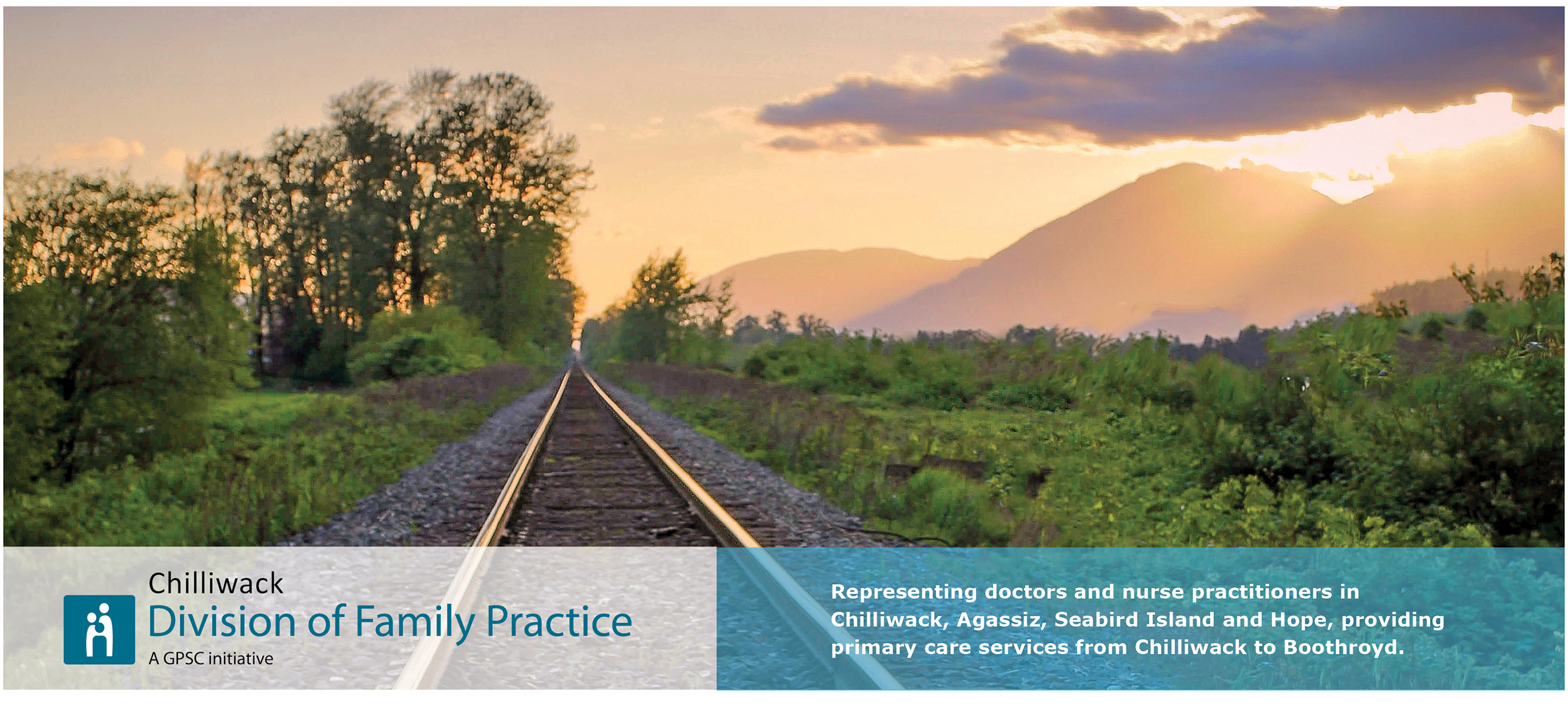With support from the Doctors of BC, FamilySmart and the Ministries of Health, Education and Children & Family Development, the CYMHSU Collaborative created 64 Local Action Teams around the province. The Chilliwack Division of Family Practice hosted the Chilliwack LAT and Fraser Cascade LAT.
Putting youth and families at the centre, the Division set about developing resources to ensure children, youth and families had TIMELY access to EFFECTIVE care. Some of the legacies from the LAT and the provincial CYMHSU Collaborative include:
- Screening – youth and young adults are the least frequent users of primary care, but they do attend sexual health clinics.The public health units have begun screening youth for mental health issues and referring to youth primary care providers.
- Education – ACEs, resiliency and attachment are key issues for turning the tide of rising youth mental health issues. Resources from the Collaborative Toolbox and Alberta Family Wellness are now available to everyone.
- Family Peer Support – this parent support group allows parents with lived experience to share successful parenting strategies, navigation to service resources and compassion. Click here for more info.
- Mental Health Guide – working with Chilliwack Healthier Communities the LAT contributed to the development of a mental health guide to help people keep balance and maintain wellness.
- Community resources and referral guide – the LAT developed community resource guides for each community, and a referral guide for professionals to connect families to the most appropriate services.
We want to send thank Fraser Health and the Fraser Valley Health Care Foundation for following through with the LAT vision to create the ER Calm Area in the Chilliwack General Hospital waiting room to make it easier for children, youth and families to receive care. Our hands go up to the health professionals, allies, youth and parents who contributed to improving the pathway to care for those journeying towards mental wellness.
| Co-Chairs: | Parents: | Youth: | ||
|
Katrina Bepple (Chilliwack Division) |
|
Katrina Maroney |
Aaron |
|
|
Dr. Melanie Madill (Physician Lead) |
|
Rhonda Zantovsky |
|
Ashley |
|
Dan Bibby (Ministry of Children and Family Development) |
|
Lina Thompson |
|
Danielle |
|
Nathan Ngieng & David Manuel (SD#33) |
|
Sue Lawrence |
|
Eric |
|
Vince Giesbrecht (Youth Rep) |
|
Tammy Pope |
|
Haley |
|
NP Lisa Helgeson (Agassiz Community Health Centre) |
|
|
|
Marina |
|
Ruth Relland (Ministry of Children and Family Development) |
|
|
|
Morgan |
|
Kevin Bird (SD #78) |
|
|
|
Taylor |
|
|
|
|
|
Tancy |
|
|
|
|
|
And the other VOYCE youth |
Screening
Screening is a critical step in Trauma Informed Care. Everyone experiences some mental health issues in their lifetime. Youth are known to not to seek help, and are more likely to talk to peers and parents. Youth are more likely to access public services like the sexual health clinic. Youth service providers can use these screening tools recommended in the CYMH module provided by the Practice Support Program (FHA) to help youth and families identify mental health issues and resources for prevention and intervention.
Some of the screening tools used by health care allies include:
- ACE & Resilience with explanation
Doctors may use the following assessment tools for diagnosis:
- Anxiety – SCARED for child or youth
Some people can mask mental health issues but suffer over a lifetime leading to chronic health conditions. It’s important to not make assumptions and apply mental health screeners broadly. Using screening tools for everyone reduces stigma, educates about mental health and ensures people get timely access to care.
Education
Some excellent resources to upgrade your youth mental health knowledge.
Learning Links BC is an online learning resource created by experts from around to province for health professionals to enhance knowledge, skills and confidence in child and youth mental health to support the needs of health care professionals and improving access for children, youth and families to medical specialists with expertise in child and youth mental health in BC. Learn more about:
- Mental health health care topic areas through different types of mediums;
- Diagnosis, management, psychopharmacology and emergent presentations;
- Up-to-date and evidence-based resources for clinicians, patients and their families.
A free, in-depth course for anyone who wants to learn more about the science of brain development.
- Videos of more than 30 leading experts in neurobiology and mental health
- Certification in Brain Story science
- 30 hours of instruction time
Kelty Mental Health is the go-to website for youth, parents and professionals to find more information and resources. The site also has family & professional resources, video curriculum, and classroom tools for all ages.
Created by Dalhousie’s Dr. Stan Kucher, these downloadable teachable modules offer strategies to support positive mental health, understand the teenage brain and its development, manage stress and anxiety, recognize signs and symptoms, and provide advice on how to seek help.
Family Peer Support Group
Shared experiences and personal stories are the best way for us to learn and develop compassion. The Family Peer Support Group is facilitated by a parent with lived experience for parents who seek understanding in dealing with their child or youth’s behavioural issues. This group meets regularly over coffee for discussion, education, navigation and social support.
The Youth Mental Health Handbook was created to assist children, youth and families to organize their care, and keep track of interventions and medications over time.
Contact Information:
Email: chwkfamilypeer@gmail.com
Phone: 604-997-5362
FB: /chwkfamilypeer


